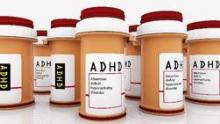Contrary to popular belief, children with attention-deficit/hyperactivity disorder receiving psychostimulants have a decreased risk of anxiety, according to a meta-analysis by Catherine G. Coughlin and her associates.
Twenty-three studies involving 2,959 ADHD patients were included in the meta-analysis. Children who received methylphenidate derivatives were less likely to experience anxiety, with a relative risk of 0.85, while children receiving amphetamine derivatives had a risk similar to that of those on placebo. Medication acting over a short time also reduced anxiety risk (relative risk, 0.83), compared with long-acting psychostimulants and placebo.
A higher dosage was found to decrease the risk of anxiety, with the reduction similar for both amphetamine and MPH derivatives. Overall, the relative risk for all children with ADHD taking any psychostimulant was 0.86, compared with that of children receiving a placebo.
“Clinicians should further consider rechallenging children with ADHD who report new-onset or worsening anxiety with psychostimulants but significant improvement in ADHD symptoms, as worsening anxiety symptoms are much more likely to be coincidental rather than caused by psychostimulants,” the investigators noted.
Find the study in the Journal of Child and Adolescent Psychopharmacology (doi: 10.1089/cap.2015.0075).


